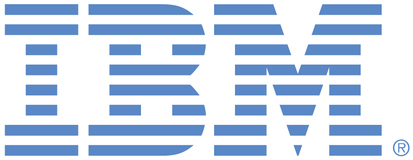
This is an IBM Automation portal for Cloud Platform products. To view all of your ideas submitted to IBM, create and manage groups of Ideas, or create an idea explicitly set to be either visible by all (public) or visible only to you and IBM (private), use the IBM Unified Ideas Portal (https://ideas.ibm.com).
Shape the future of IBM!
We invite you to shape the future of IBM, including product roadmaps, by submitting ideas that matter to you the most. Here's how it works:
Search existing ideas
Start by searching and reviewing ideas and requests to enhance a product or service. Take a look at ideas others have posted, and add a comment, vote, or subscribe to updates on them if they matter to you. If you can't find what you are looking for,
Post your ideas
Post an idea.
Get feedback from the IBM team and other customers to refine your idea.
Follow the idea through the IBM Ideas process.
Specific links you will want to bookmark for future use
Welcome to the IBM Ideas Portal (https://www.ibm.com/ideas) - Use this site to find out additional information and details about the IBM Ideas process and statuses.
IBM Unified Ideas Portal (https://ideas.ibm.com) - Use this site to view all of your ideas, create new ideas for any IBM product, or search for ideas across all of IBM.
ideasibm@us.ibm.com - Use this email to suggest enhancements to the Ideas process or request help from IBM for submitting your Ideas.

First part of Article series was published which covers general archive handling
https://community.ibm.com/community/user/wasdevops/blogs/osman-burucu/2023/04/05/artifact-archive-handling-part1
Thank You for your feedback.
Please could you check the latest version 7.3.0 with the clean up configuration page to verify. I to think that it will help you tremendously.
I also will check with development and reply as soon as i know more.
For handling cleanup outside of UCD -
I believe IBM doesn't recommend touching the file system from the backend. Is this something officially documented somewhere? If not, I would recommend to please consider this again or provide an alternate solution that helps us resolve this problem with no issues from vendor support side.
For new cleanup settings feature -
The problem is how to restrict these changes by not letting users to modify cleanup settings on components or environments. The best would be to keep this option with tool admins only. I am not sure how this feature will help us in achieving that. We have about 30k components, 6k applications with minimum 3 environments in each. Filtering on so much data will impact the performance.
I believe UCD team should think about first restricting the control on systems settings and for the new feature offered it should be more based on TYPE (so for e.g., enterprises with data retention policies for PROD) can have prod deployed artifacts for say 7 years. Thanks.
Regarding the clean-up of archive files:
this can be always handled outside of UCD. You can use your company wide archiving and backup system to move "old" files into your archiving system and remove it from the file-location defined for UCD.
If a restore is needed of the given archive, just place it back there, use the UCD function for restore.
As the UCD function will always create a new version internaly, the next archiving of the artifacts will also generate a new file, which you again can backup and restore on demand
We do provide the capability to check and edit the cleanup settings with a new feature "Cleanup configurations" (see doc: https://www.ibm.com/docs/en/urbancode-deploy/7.3.0?topic=versions-configuring-cleanup-settings)
For this we do provice permission setting in the role configuration:
Bulk Manage Cleanup
Allows users to view, and edit the cleanup settings of multiple components and environments from the Cleanup Configuration page.
A given role (which has the right to change this values) could check and overwrite the wrong values from there.
Adding more permission settings down to artifact level will increase complexity tremendously.
This is related to RFE URBANCODE-I-512 https://cloud-platform.ideas.ibm.com/ideas/URBANCODE-I-512).
Please add your feedback to it